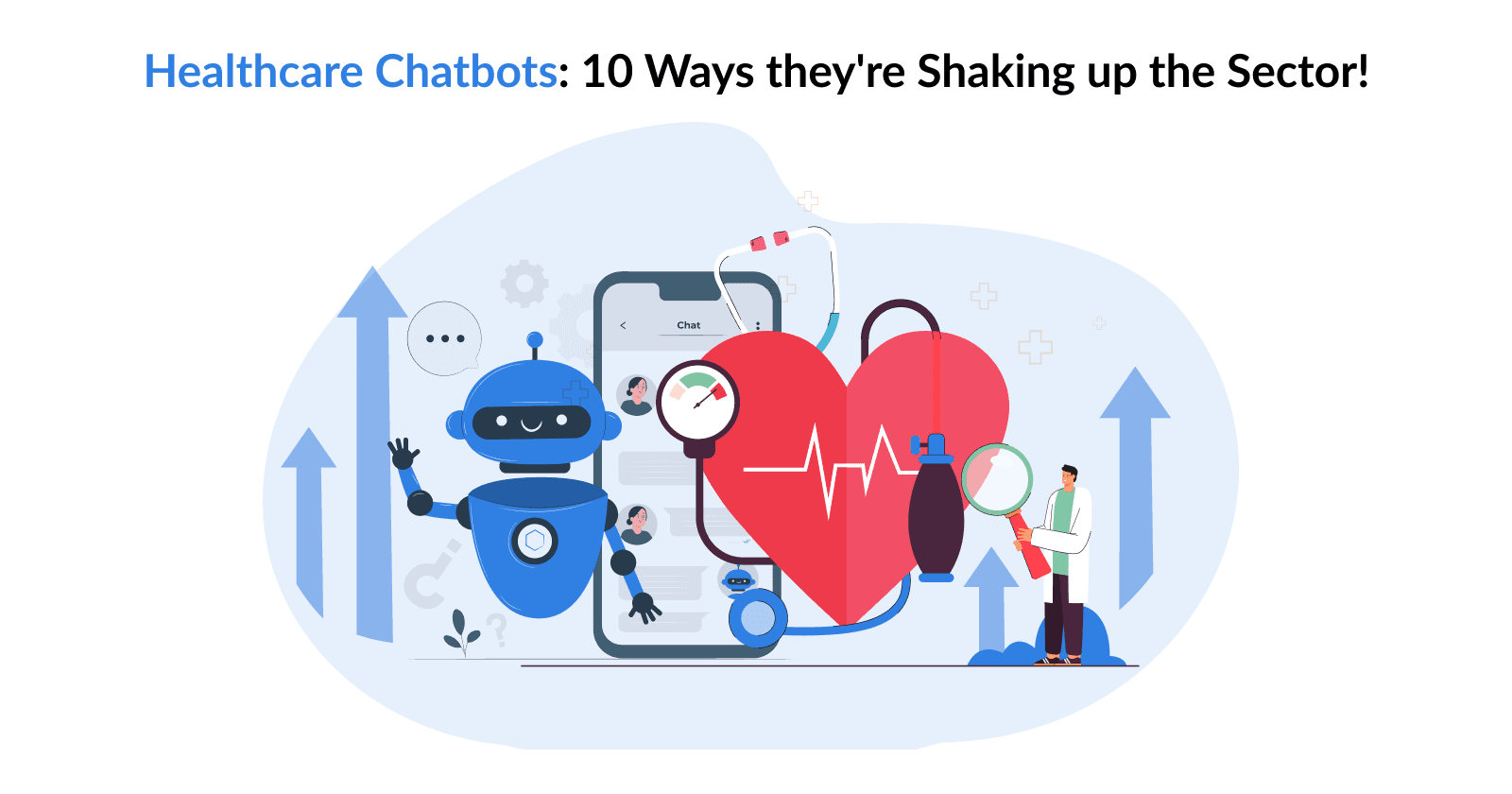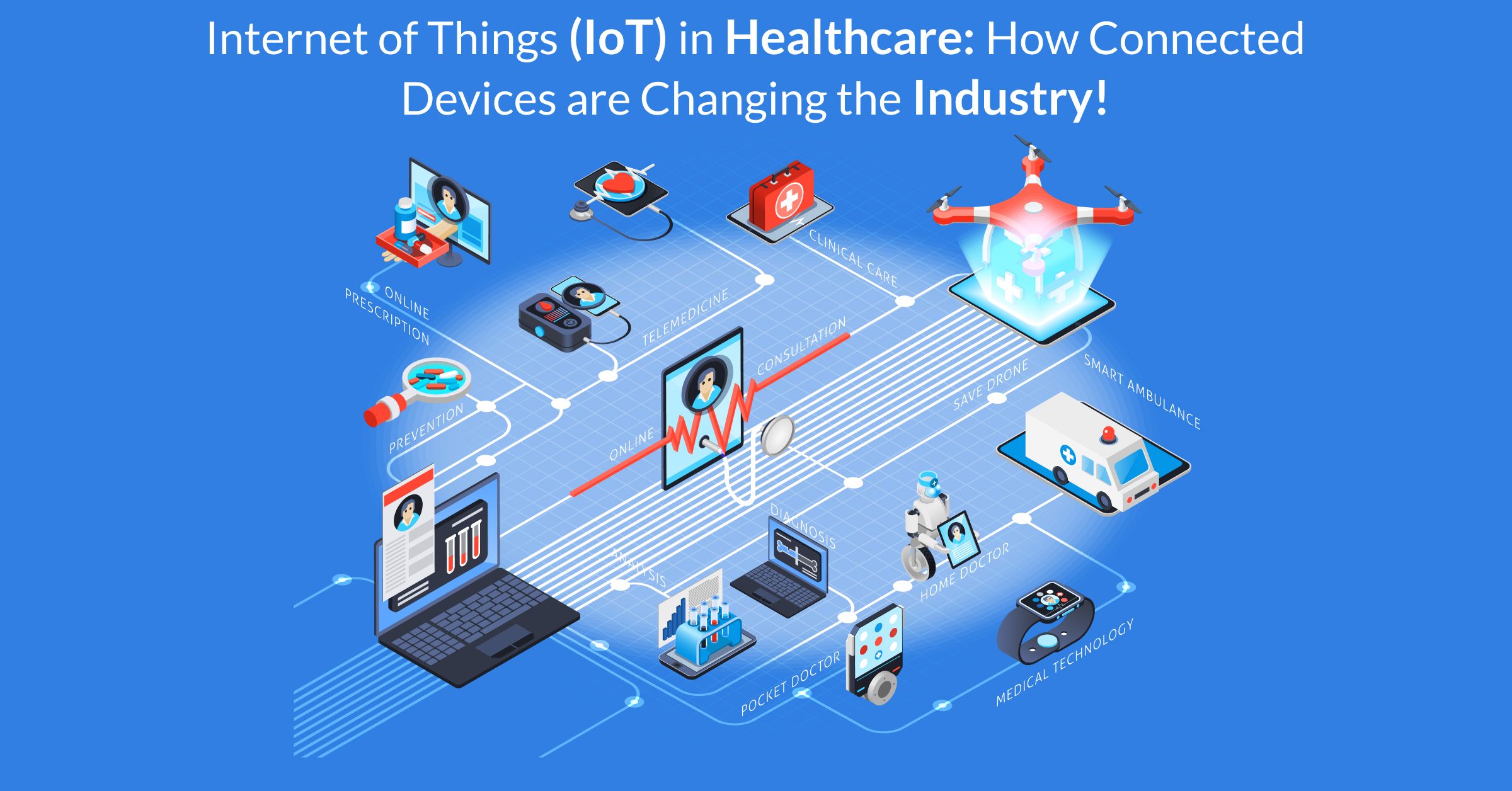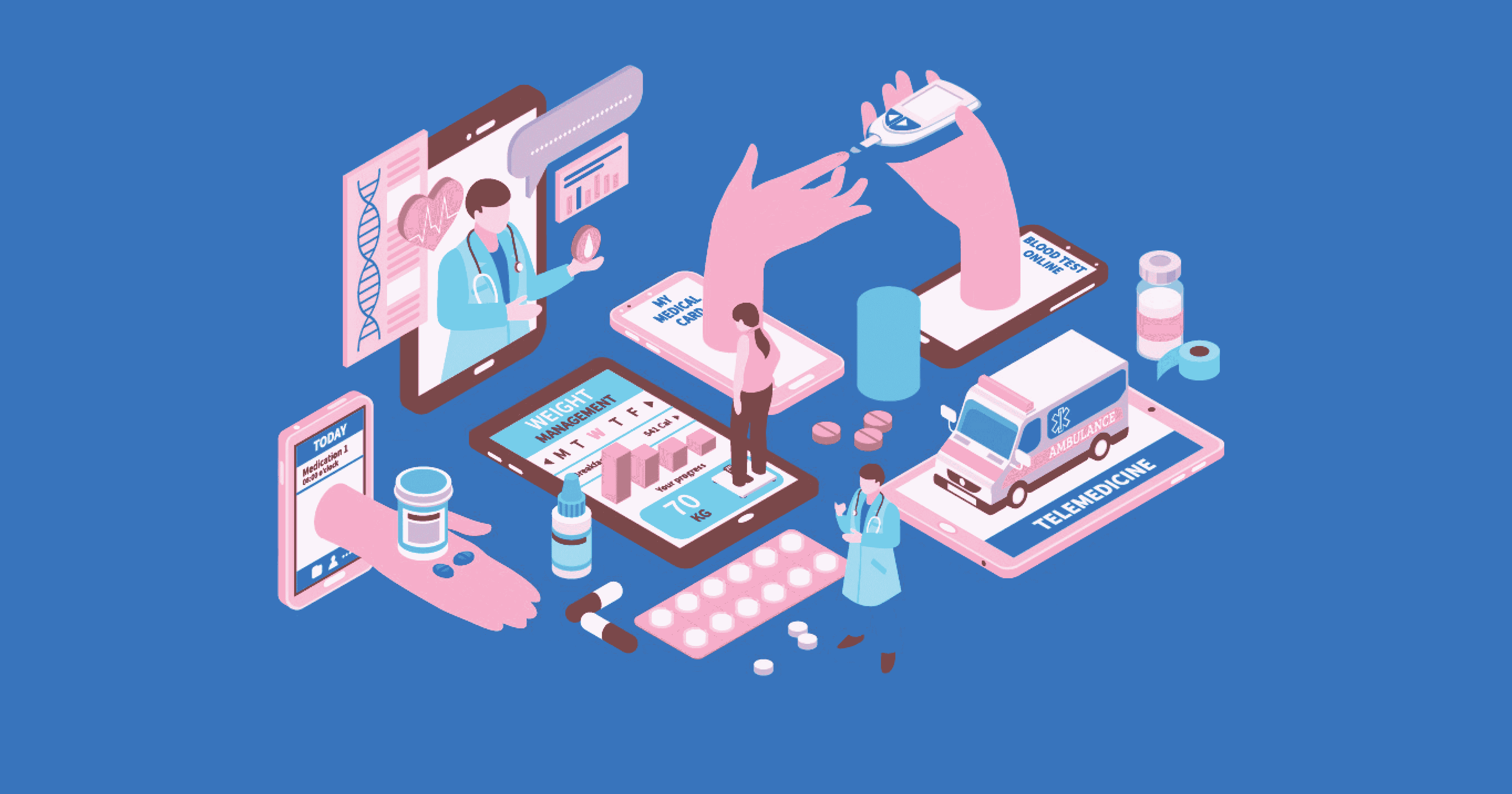Introduction
The healthcare industry has undergone a significant transformation in the past decade with the advent of mobile technology. The rise of smartphones and mobile apps has provided new opportunities for patients and healthcare providers to communicate and collaborate more effectively. The use of mobile apps in the healthcare industry has increased tremendously, and the trend is expected to continue in the coming years.
The healthcare industry has undergone a significant transformation in the past decade with the advent of mobile technology. The rise of smartphones and mobile apps has provided new opportunities for patients and healthcare providers to communicate and collaborate more effectively. The use of mobile apps in the healthcare industry has increased tremendously, and the trend is expected to continue in the coming years.
In this blog, we will discuss the role of mobile apps in the healthcare industry and how they are improving access and communication between patients and providers.
Benefits of Mobile Apps in the Healthcare Industry
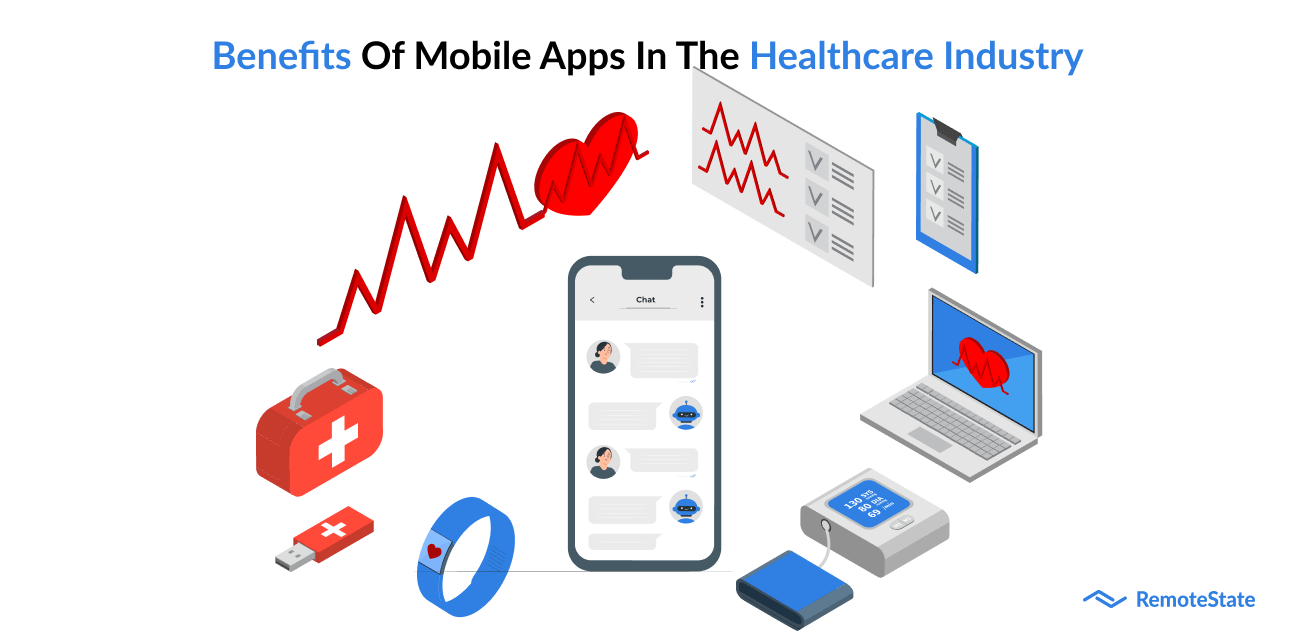
Mobile apps have brought a multitude of benefits to the healthcare industry, making healthcare more accessible and convenient for patients. Here are some of the key benefits of mobile apps in healthcare:
Increased Access to Healthcare
One of the most significant benefits of mobile apps in healthcare is increased access to healthcare services. Patients can access healthcare services from anywhere, at any time, without having to visit the hospital or clinic physically.
Improved Communication Between Patients and Providers
Mobile apps have made it easier for patients and healthcare providers to communicate with each other. Patients can quickly contact their healthcare providers through in-app messaging or video calls, while providers can send alerts and reminders to their patients.
Better Health Monitoring
Mobile apps can be used to monitor patients' health and track their progress. Patients can input their vital signs and medical history into the app, and the data can be used by healthcare providers to assess their health status and provide personalized care.
Patient Empowerment
Mobile apps have empowered patients to take control of their healthcare. Patients can access information about their condition and treatment, communicate with their healthcare providers, and manage their medications through the app.
Reduced Healthcare Costs
Mobile apps have the potential to reduce healthcare costs by enabling remote consultations and reducing the need for hospital visits. Patients can also use the app to access affordable healthcare services and find discounts on medication.
Challenges of Mobile Apps in the Healthcare Industry
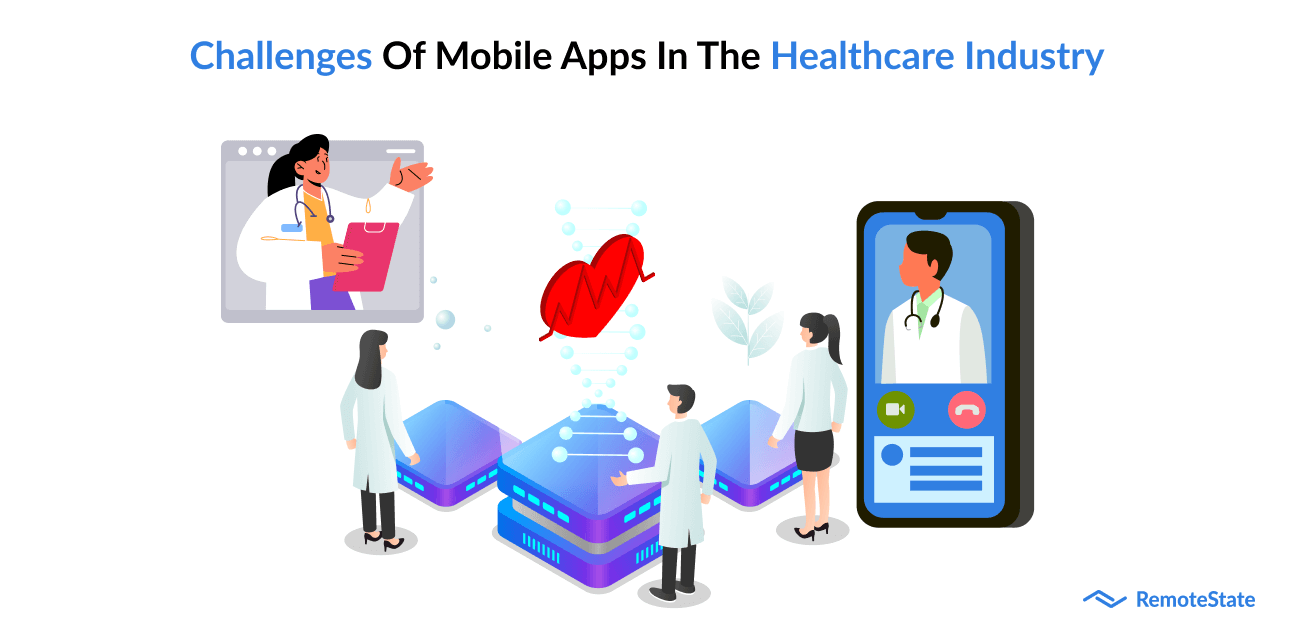
Despite the many benefits of mobile apps in healthcare, several challenges need to be addressed. Here are some of the main challenges of mobile apps in healthcare:
Data Security
Mobile apps in healthcare collect and store sensitive patient data, such as medical history and treatment plans. It is crucial to ensure that this data is secure and protected from cyber-attacks and data breaches.
Lack of Standardization
There are currently no standards for mobile apps in healthcare, which can lead to inconsistencies in the quality of care provided through the app.
Limited Connectivity
Mobile apps require a stable internet connection, which can be a challenge in some areas, particularly in rural and remote areas.
Privacy Concerns
Patients may be hesitant to use mobile apps due to privacy concerns, particularly if they are required to share sensitive information through the app.
Opportunities for Mobile Apps in the Healthcare Industry
Despite the challenges, there are many opportunities for mobile apps in healthcare. Here are some of the key opportunities:
Telemedicine
Mobile apps can be used to provide telemedicine services, enabling patients to consult with their healthcare providers remotely. This can be particularly beneficial for patients who live in rural or remote areas.
Personalized Medicine
Mobile apps can be used to provide personalized medicine by collecting and analyzing patient data. This can help healthcare providers to provide targeted treatments based on the patient's individual needs.
Patient Engagement
Mobile apps can be used to engage patients in their healthcare by providing them with access to their medical records and enabling them to manage their healthcare needs more effectively.
Chronic Disease Management
Mobile apps can be used to manage chronic diseases, such as diabetes and hypertension. Patients can input their vital signs into the app, and the data can be used by healthcare providers to monitor their condition and adjust their treatment plans as needed.
Conclusion
Mobile apps have the potential to revolutionize the way healthcare is delivered and accessed. They offer a range of benefits, including increased access to healthcare, improved communication between patients and providers, better health monitoring, patient empowerment, and reduced healthcare costs. However, there are also challenges to be addressed, such as data security, lack of standardization, limited connectivity, and privacy concerns.
Despite the challenges, the opportunities for mobile apps in healthcare are vast. They can be used to provide telemedicine services, personalized medicine, patient engagement, and chronic disease management. The use of mobile apps in healthcare is expected to continue to grow in the coming years, and healthcare providers and app developers need to work together to address the challenges and leverage the opportunities presented by mobile technology.
Remotestate: Your Partner in Developing Secure and User-Friendly Mobile Apps for the Healthcare Industry!
Remotestate can play a vital role in the development and implementation of mobile apps in healthcare. Remotestate has expertise in building secure, reliable, and user-friendly mobile apps that comply with healthcare regulations and standards.
Remotestate can work with healthcare providers to understand their unique needs and develop custom mobile apps that meet their requirements. The company can also provide ongoing support and maintenance to ensure that the app remains up-to-date and secure.
Remotestate can also help address the challenges of mobile apps in healthcare. For example, the company can implement strong data encryption and access controls to ensure that patient data is secure. Remotestate can also ensure that the app is developed using standardization guidelines, ensuring interoperability with other healthcare systems.
Furthermore, Remotestate can leverage its experience in developing mobile apps to create apps that improve patient engagement and empowerment. For example, the company can develop apps that provide patients with personalized health recommendations, track their progress, and help them manage chronic conditions more effectively.
In summary, Remotestate can play an essential role in the development and implementation of mobile apps in healthcare. The company can provide healthcare providers with custom mobile apps that meet their unique needs, while also addressing the challenges and opportunities presented by mobile technology in healthcare.
FAQs
How can mobile apps improve access to healthcare?
Mobile apps enable patients to access healthcare services from anywhere, at any time, without having to visit the hospital or clinic physically. Patients can consult with their healthcare providers remotely, access their medical records, and manage their healthcare needs more effectively through the app.
Are mobile apps in healthcare secure?
Mobile apps in healthcare collect and store sensitive patient data, such as medical history and treatment plans. It is crucial to ensure that this data is secure and protected from cyber-attacks and data breaches. App developers and healthcare providers must take measures to ensure the security of patient data.
How can mobile apps improve communication between patients and providers?
Mobile apps have made it easier for patients and healthcare providers to communicate with each other. Patients can quickly contact their healthcare providers through in-app messaging or video calls, while providers can send alerts and reminders to their patients.
Can mobile apps be used to manage chronic diseases?
Yes, mobile apps can be used to manage chronic diseases, such as diabetes and hypertension. Patients can input their vital signs into the app, and the data can be used by healthcare providers to monitor their condition and adjust their treatment plans as needed.
What are the challenges of mobile apps in healthcare?
The challenges of mobile apps in healthcare include data security, lack of standardization, limited connectivity, and privacy concerns. It is essential to address these challenges to ensure that mobile apps are used effectively and safely in healthcare.
Publication Date
2023-04-24
Category
Healthcare
Author Name
Rahul Agrawal
